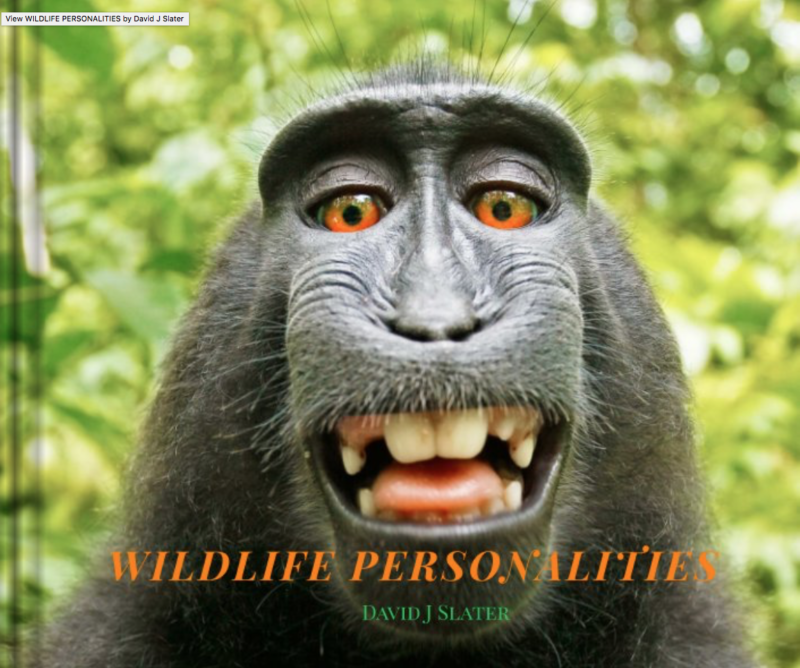
Going on two years now, an Indonesian macaque monkey named Naruto, represented by his self-appointed lawyers from the People for the Ethical Treatment of Animals, has been trying to claim ownership of the selfies he took of himself with a camera he swiped from a British nature photographer in the jungle of the Tangkoko reserve.
This issue is no laughing matter, regardless of how bizarre it seems.
Let's assume PETA is correct—that copyrights can be granted to animals. After all, US copyright law grants ownership of images to those who snapped them. So why can't that owner be a monkey? That's PETA's position—one that has been generally down-voted so far in court and across a broad swath of the Internet as being bananas.
On behalf of Naruto, PETA is making an even more frightening argument. It's one threatening to unwind Internet freedom, and it's an argument that has been lost in the headlines surrounding this monkey selfie brouhaha.
To be sure, if Naruto is deemed the owner of these infamous selfies, the monkey has the right to sue the photographer for copyright infringement. That's because David Slater, the photographer, has self-published the photos in a book, Wildlife Personalities.
Toward the goal of winning the rights for animals to own property, PETA asked a federal appeals court on Wednesday to overturn a lower court judge who last year ruled the US Copyright Act doesn't grant legal standing to Naruto, or to animals in general, to sue for infringement. That's legal jargon to mean that Naruto doesn't own the photos. A decision by the appeals court could come any day.
Monkey sue
PETA's copyright infringement claims don't stop with Slater, who says he's now broke because of the litigation, and because of a US Copyright Office position that Slater doesn't own the photos either. Remember, he didn't take them.
PETA, in a scorched Earth litigation approach, is also suing Blurb, the online publishing platform Slater chose to create his e-book and hard-cover book. That's a dangerous position for PETA to take, one that asserts that companies that supply tools for people to self-publish their own works can be held liable for the content posted or uploaded by third parties, Blurb says.
Blurb's involvement in the book was to supply online software to create the e-book and to host the book for sale. Blurb neither claims ownership nor any rights to Wildlife Personalities whatsoever. The company did not edit it and claims no responsibility for any of its content, according to its terms of service and court documents. Naruto, through PETA's lawyers, never asked Blurb or any other bookselling platform, like Amazon, to take down the book.
Imagine an Internet in which Blurb were liable for infringement. There might not be an Internet, at least the one we know of today. Say goodbye to Evite, Shutterfly, to personal blogs, to eBay, and perhaps to an unfettered social media. In short, no business would likely host third-party content posted by others if it was liable for that content—whether it be infringing, defamatory, or you name it.
"Basically, the argument we made is that Blurb is not an appropriate defendant in this lawsuit because the content is controlled by, in this case, Slater, and Blurb is therefore protected under the law," Blurb's attorney, Angela Dunning, told Ars in a telephone interview.
Jeffrey Kerr, PETA's general counsel, told Ars in a telephone interview that Blurb is liable because "they are the ones that published the book in which the copyright was asserted. That book was published by them."
The Digital Millennium Copyright Act and the Communications Decency Act are the main US laws generally protecting hosts of third-party content from legal assaults like this.
Monkey wrench
If Naruto wins the right to sue, as PETA wants, that would amount to another legal salvo attempting to erode the laws that the Internet depends on to survive. And the undermining of these legal precepts is already happening, too.
Consider a June ruling before the same appeals court that Naruto's lawyers appeared before on Wednesday. The San Francisco-based 9th US Circuit Court of Appeals has revived a lawsuit against a website for models because the site did not warn users that there were rapists reading the auditioning site in search of their next victim.
Maybe in a perfect world, Naruto would own the rights to the selfies. But maybe humankind, for better or worse, simply hasn't evolved far enough to accept that. Speaking of evolution, PETA's legal quest to give human rights to Naruto and other animals—whether we applaud that goal or mock it—threatens to throw a monkey wrench into the Internet as it has evolved to today.
Reader Comments (213)
View comments on forumLoading comments...